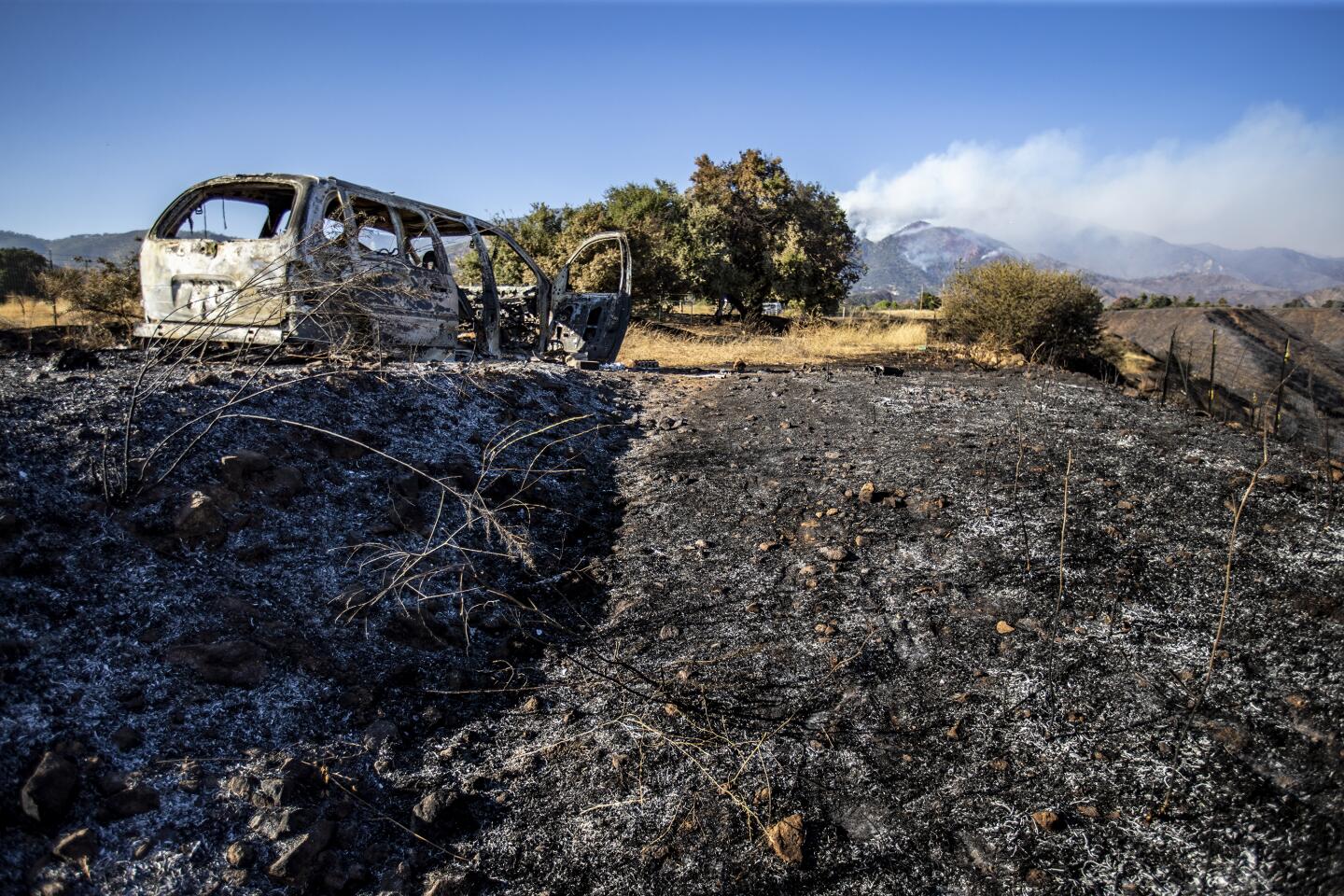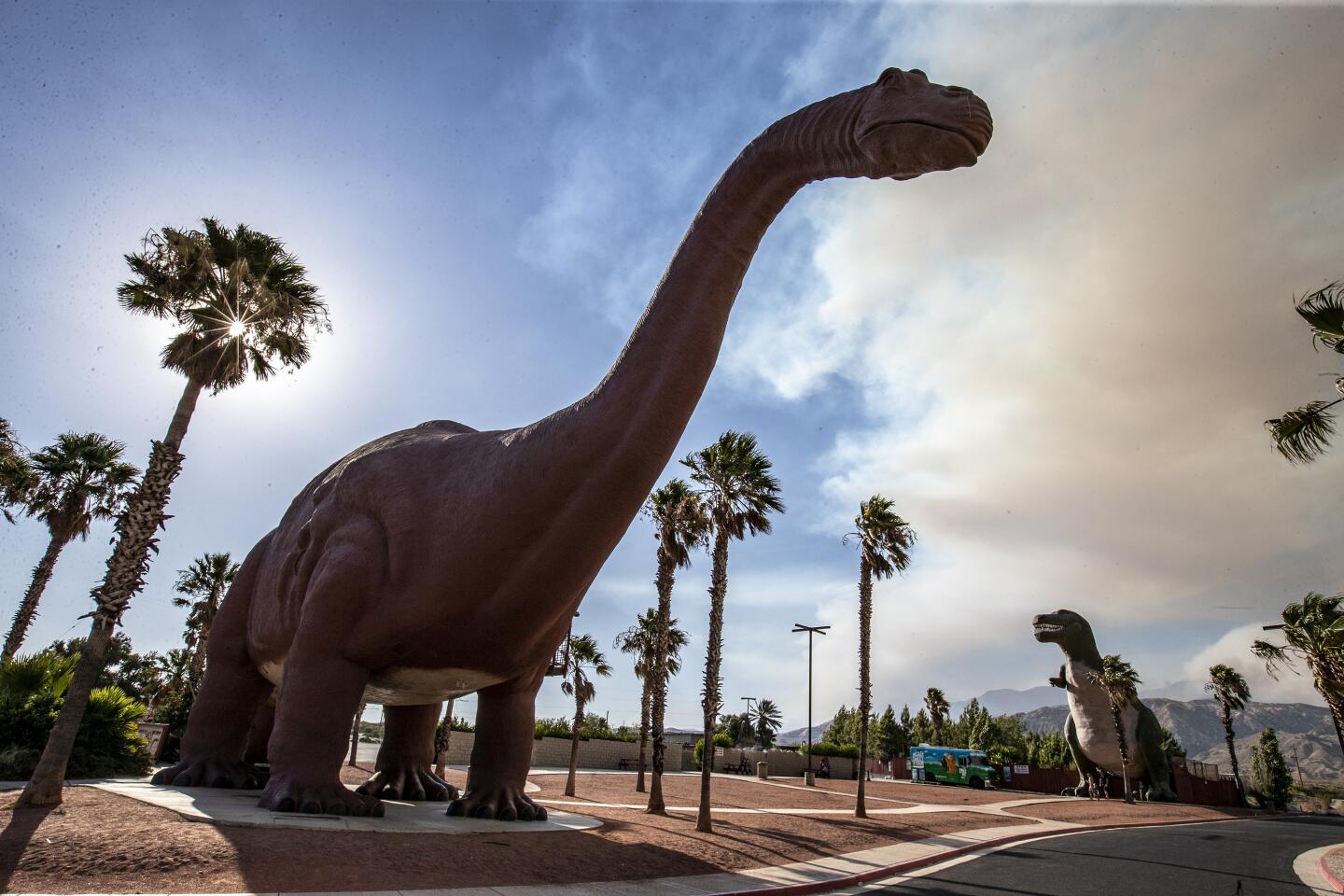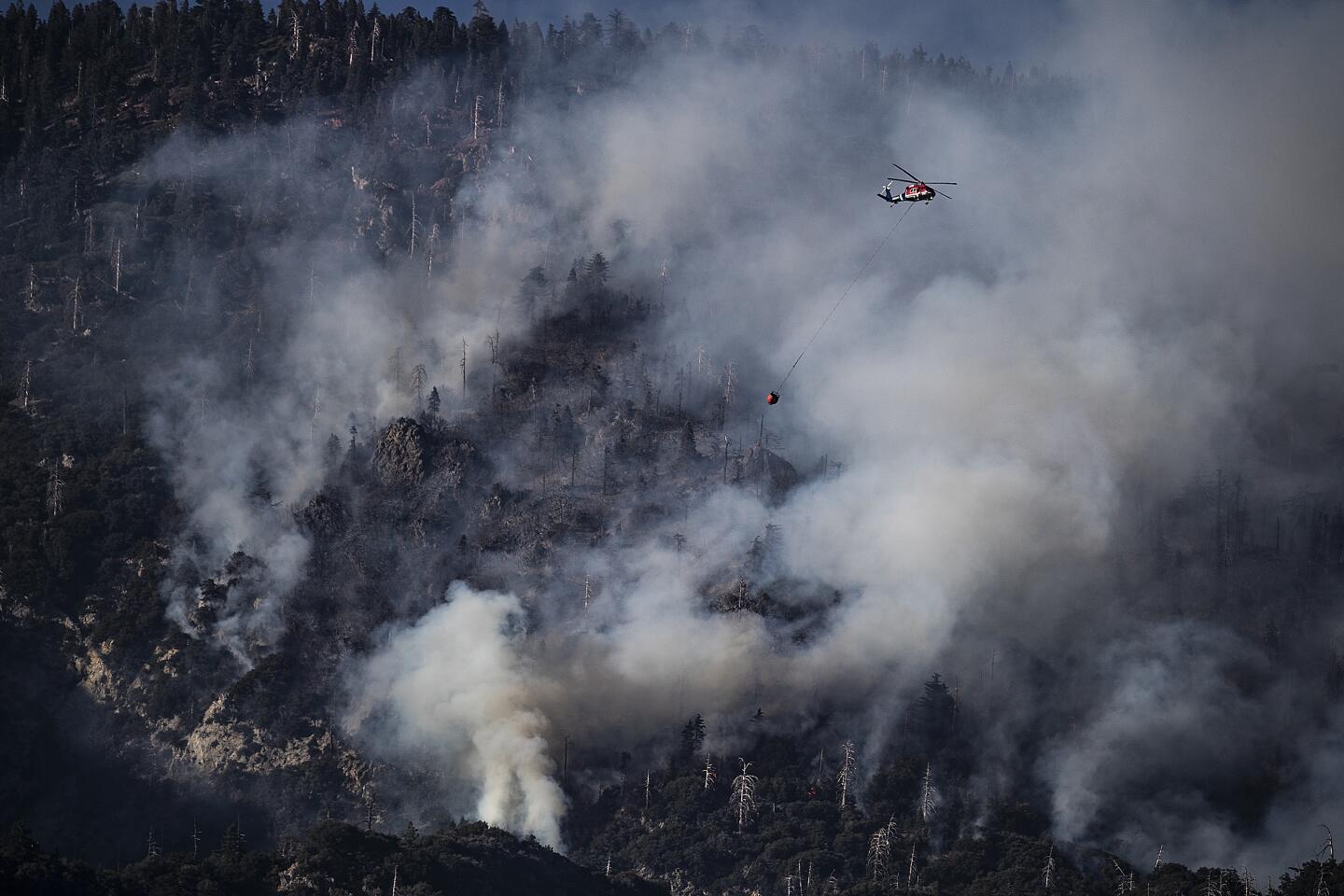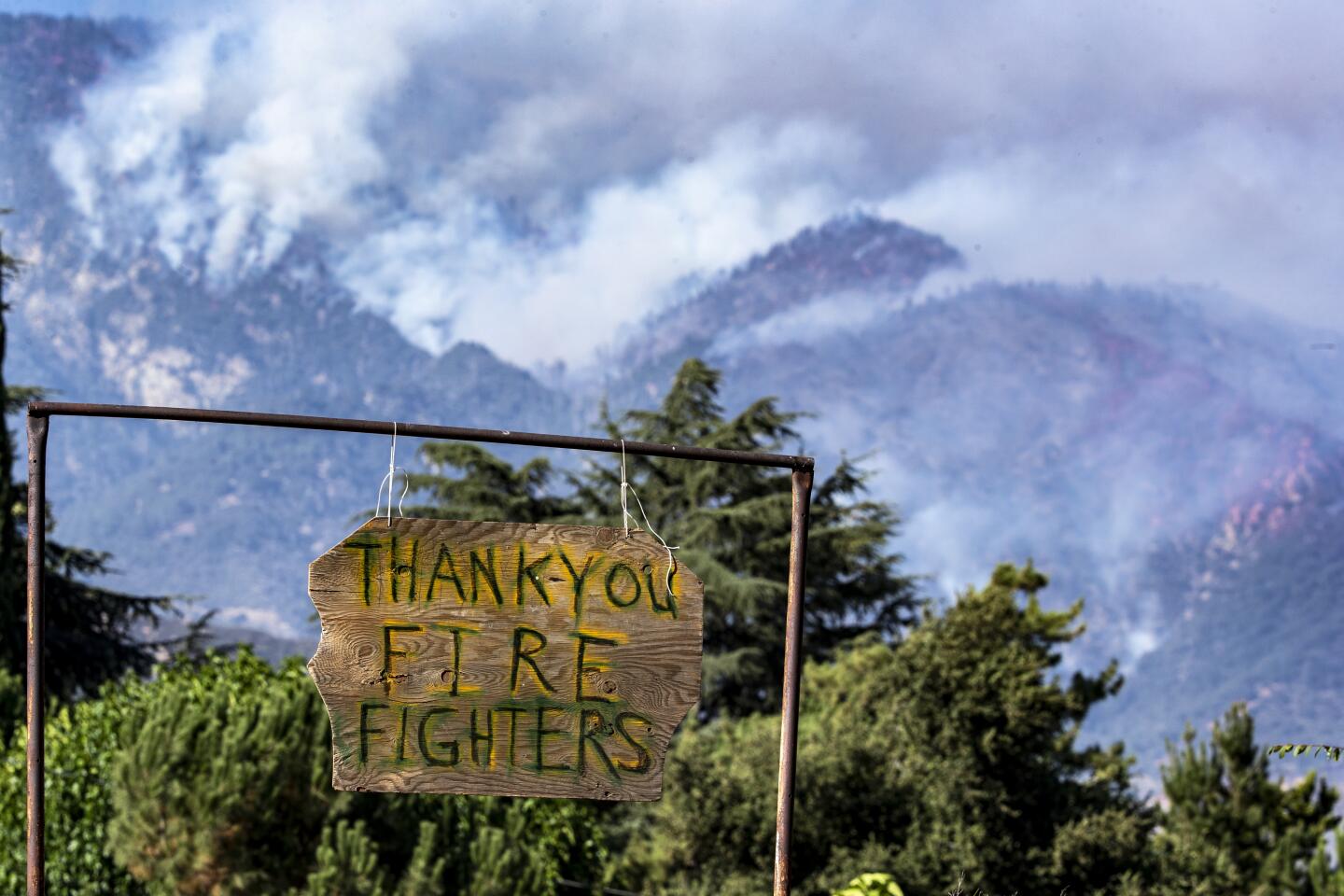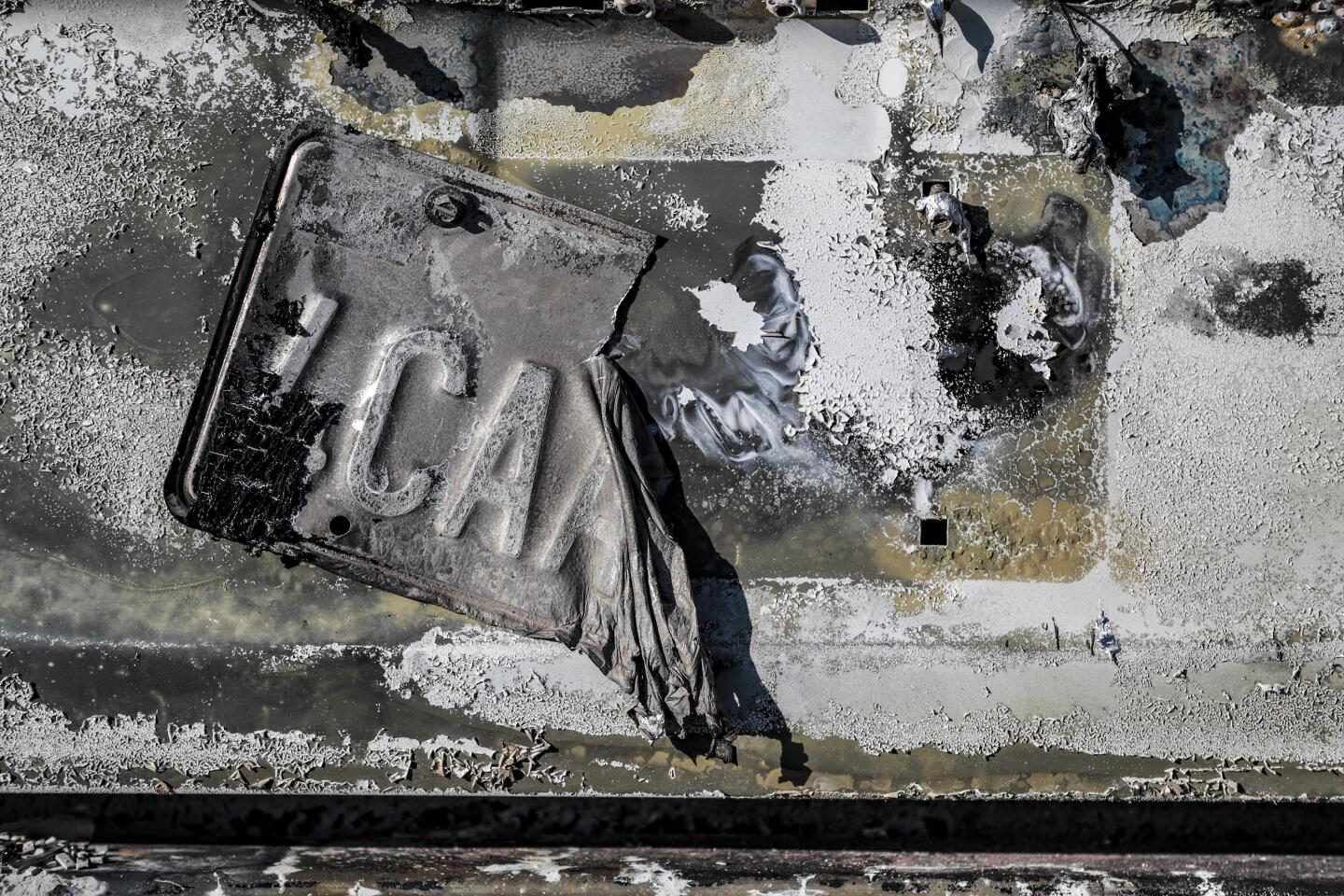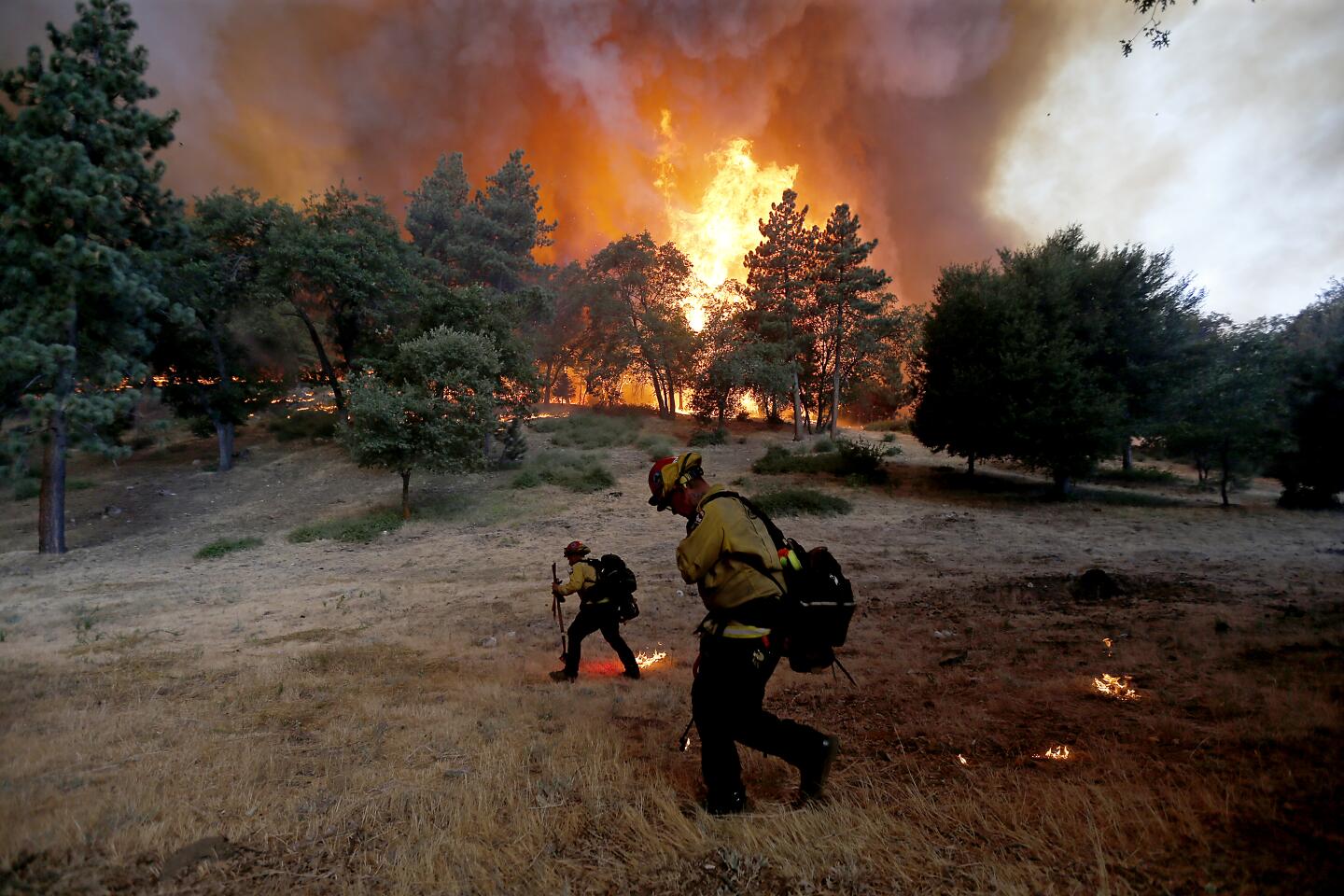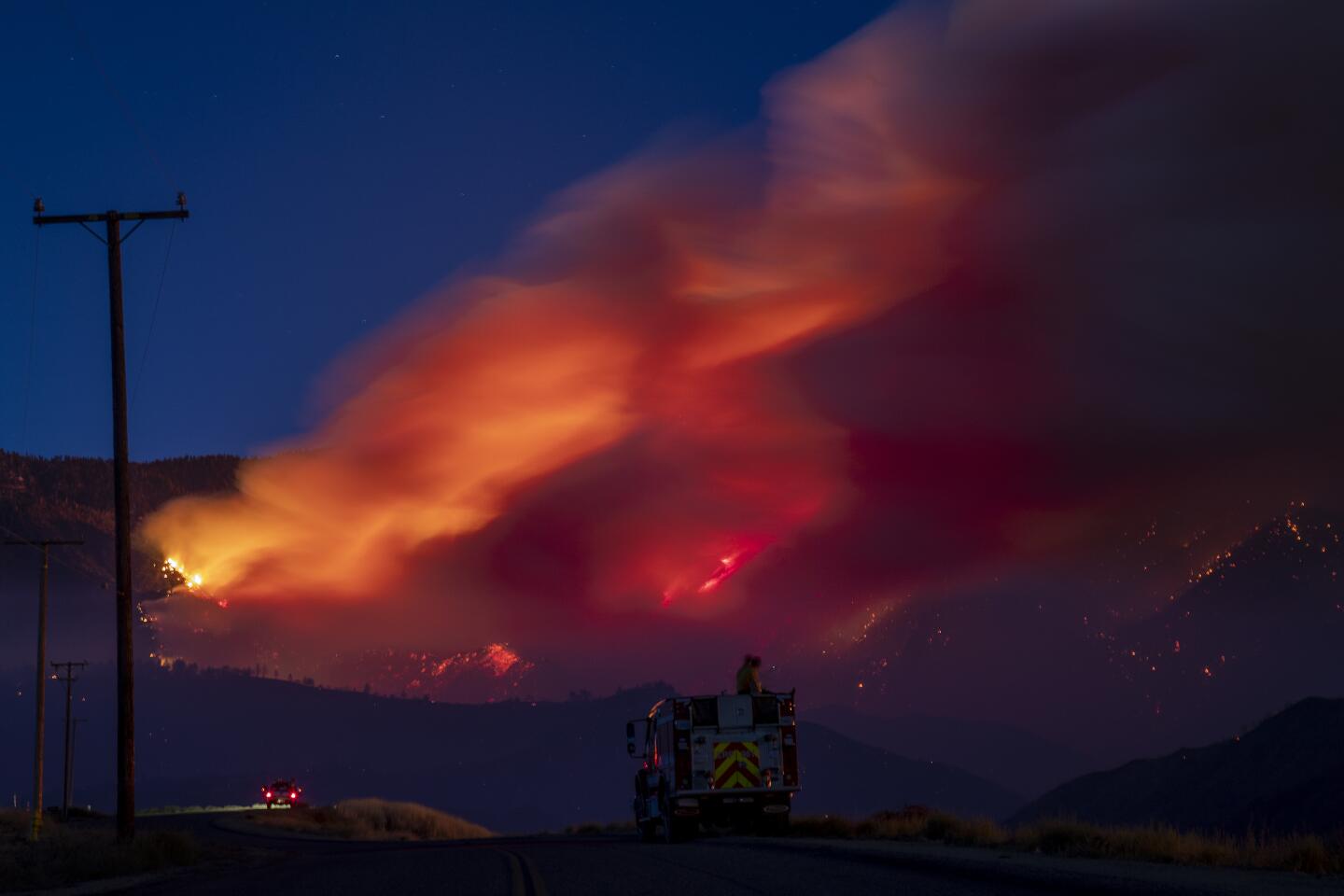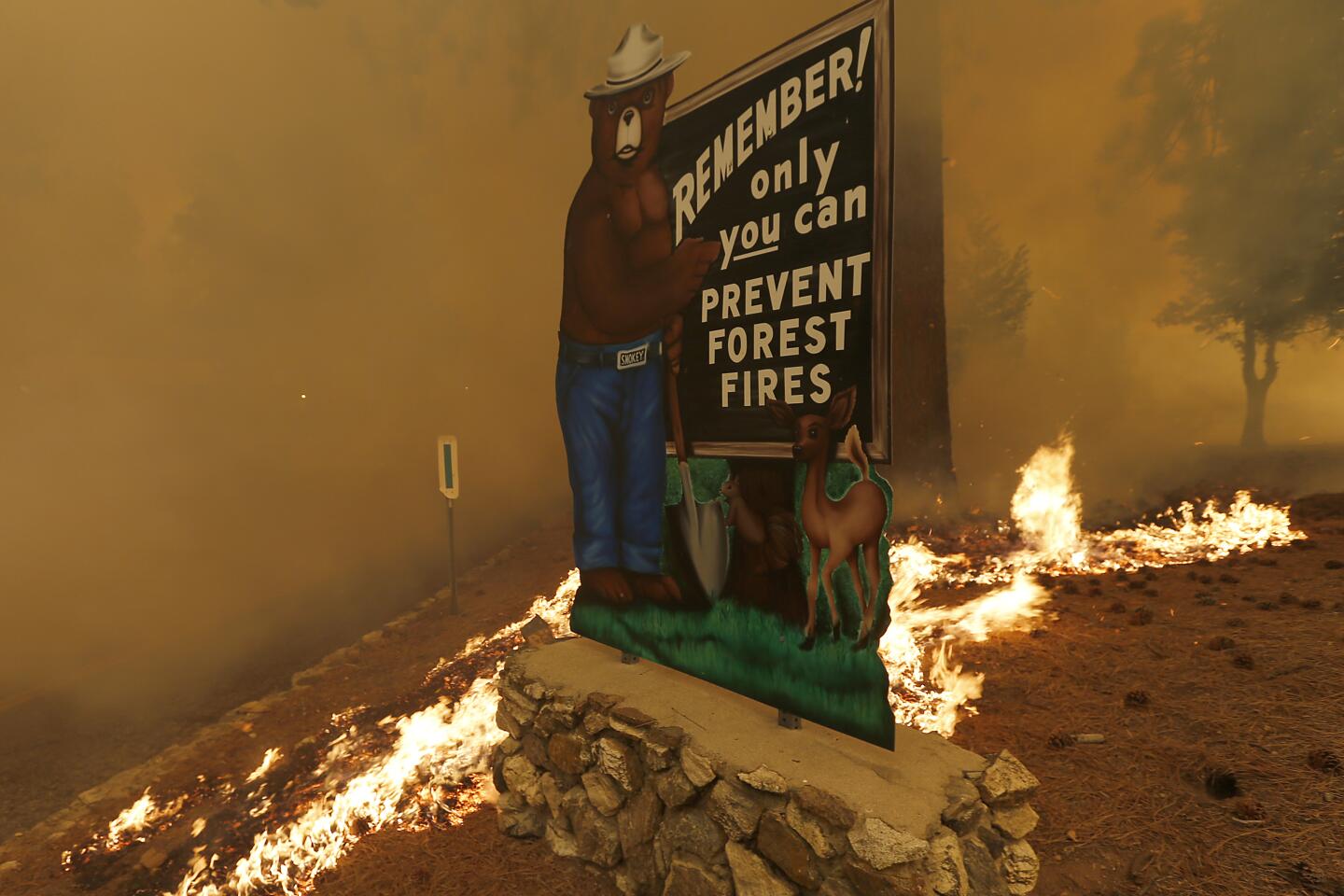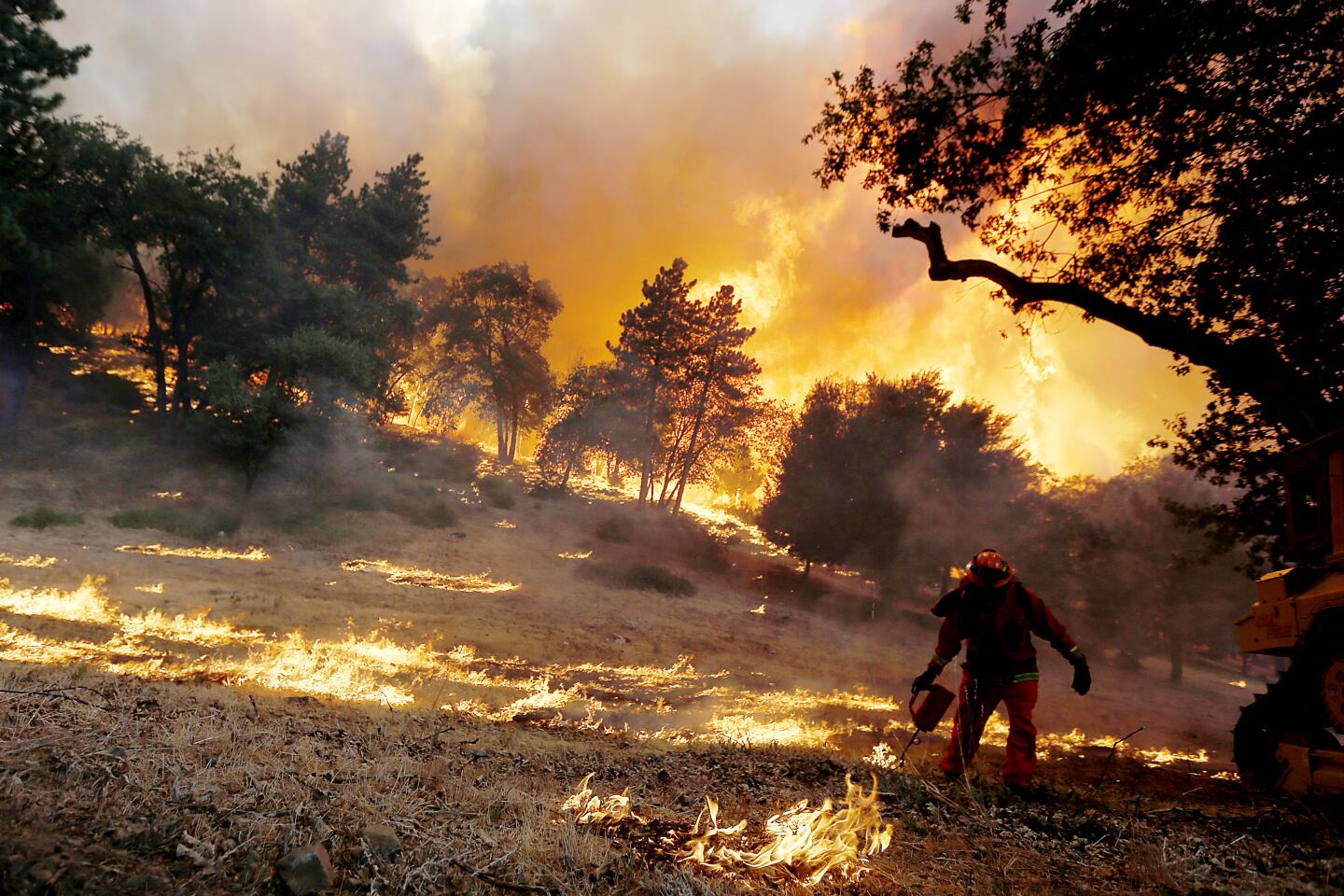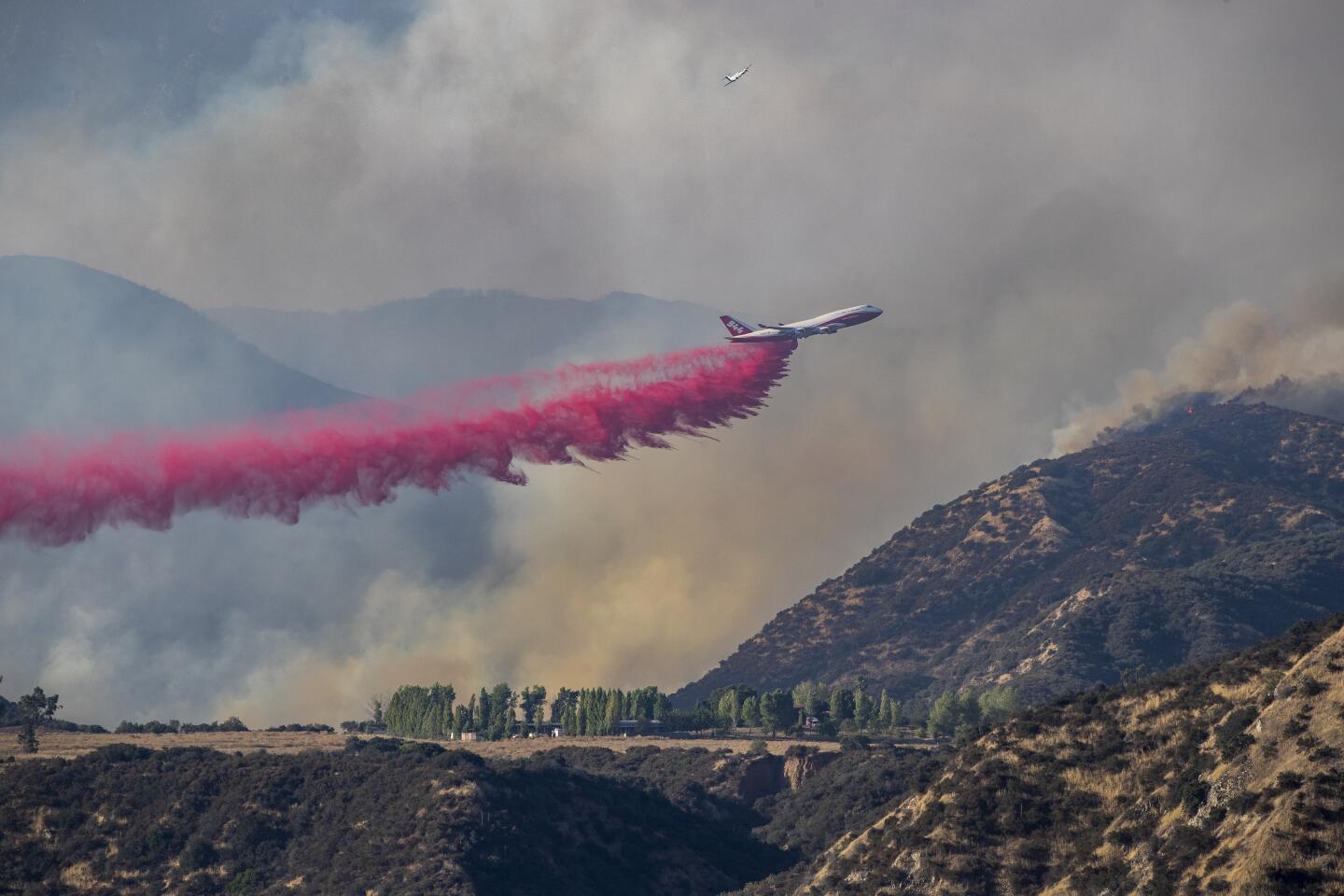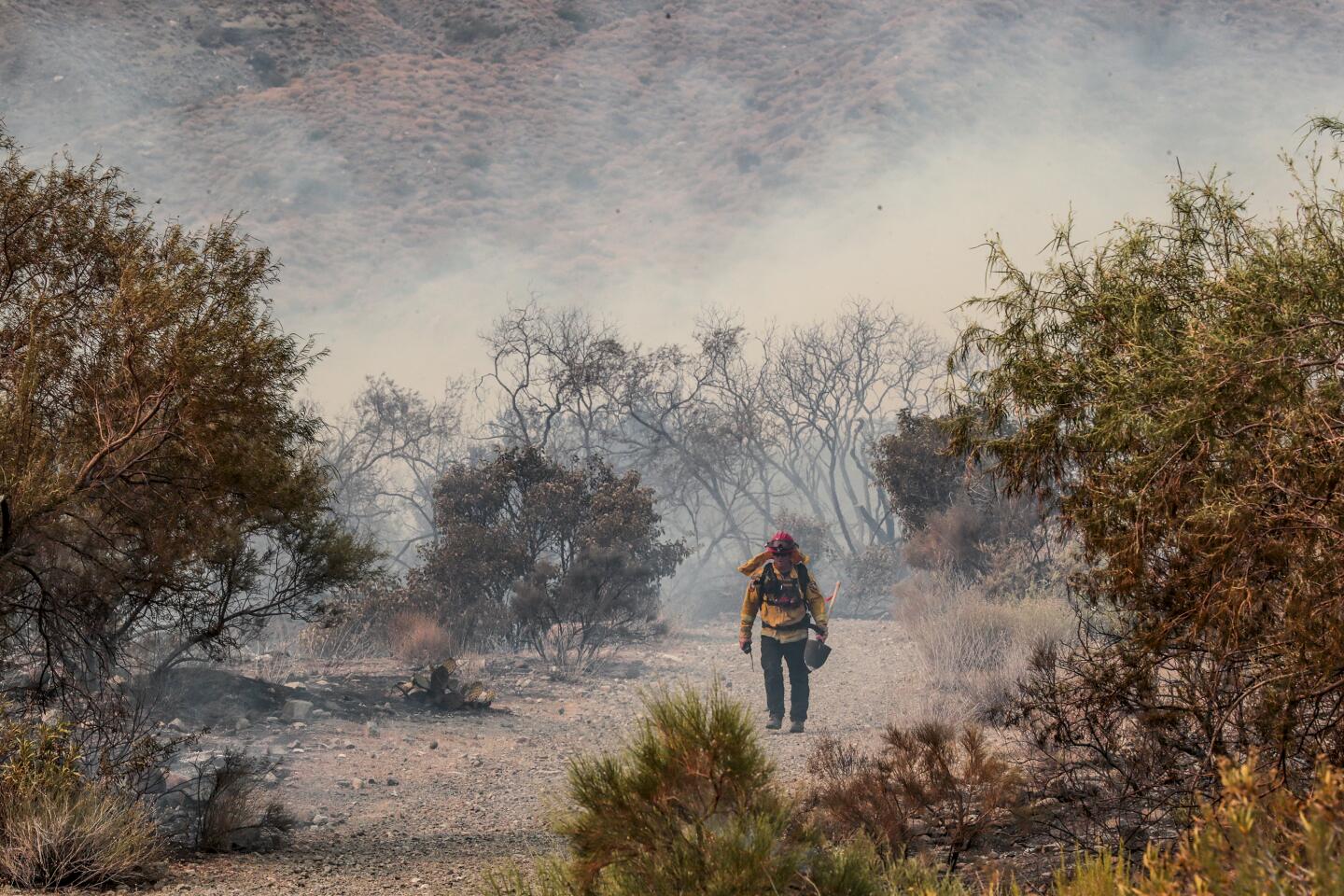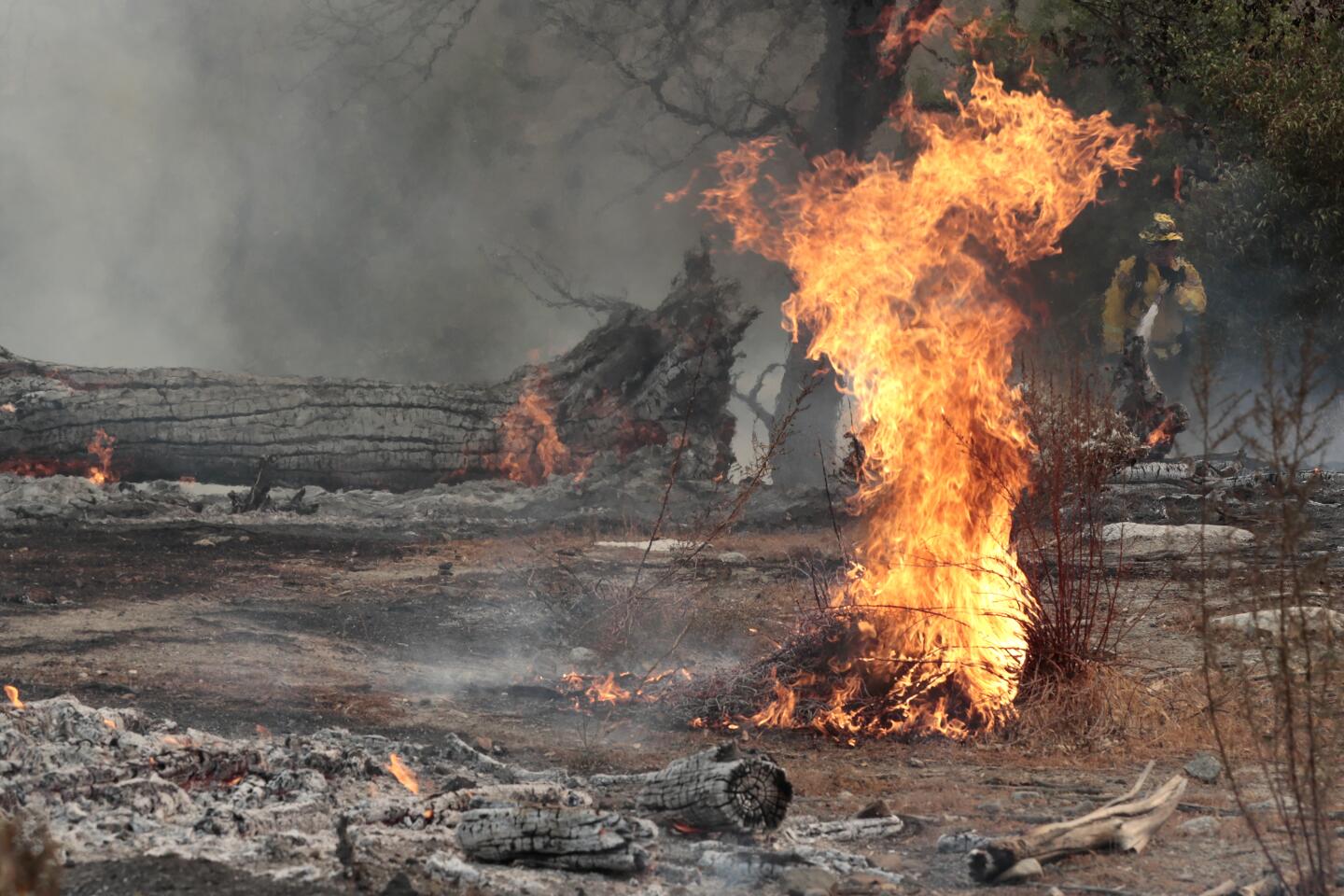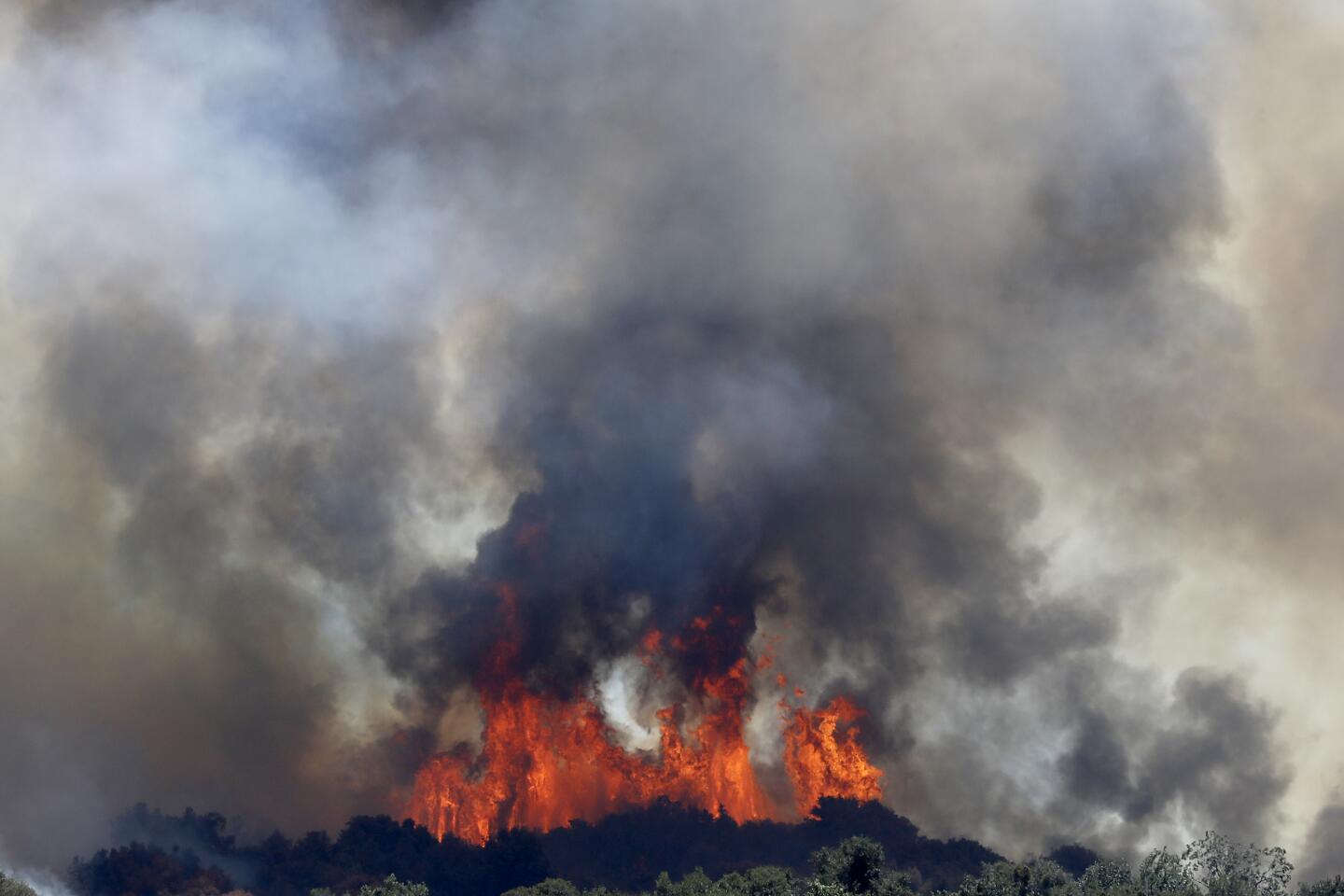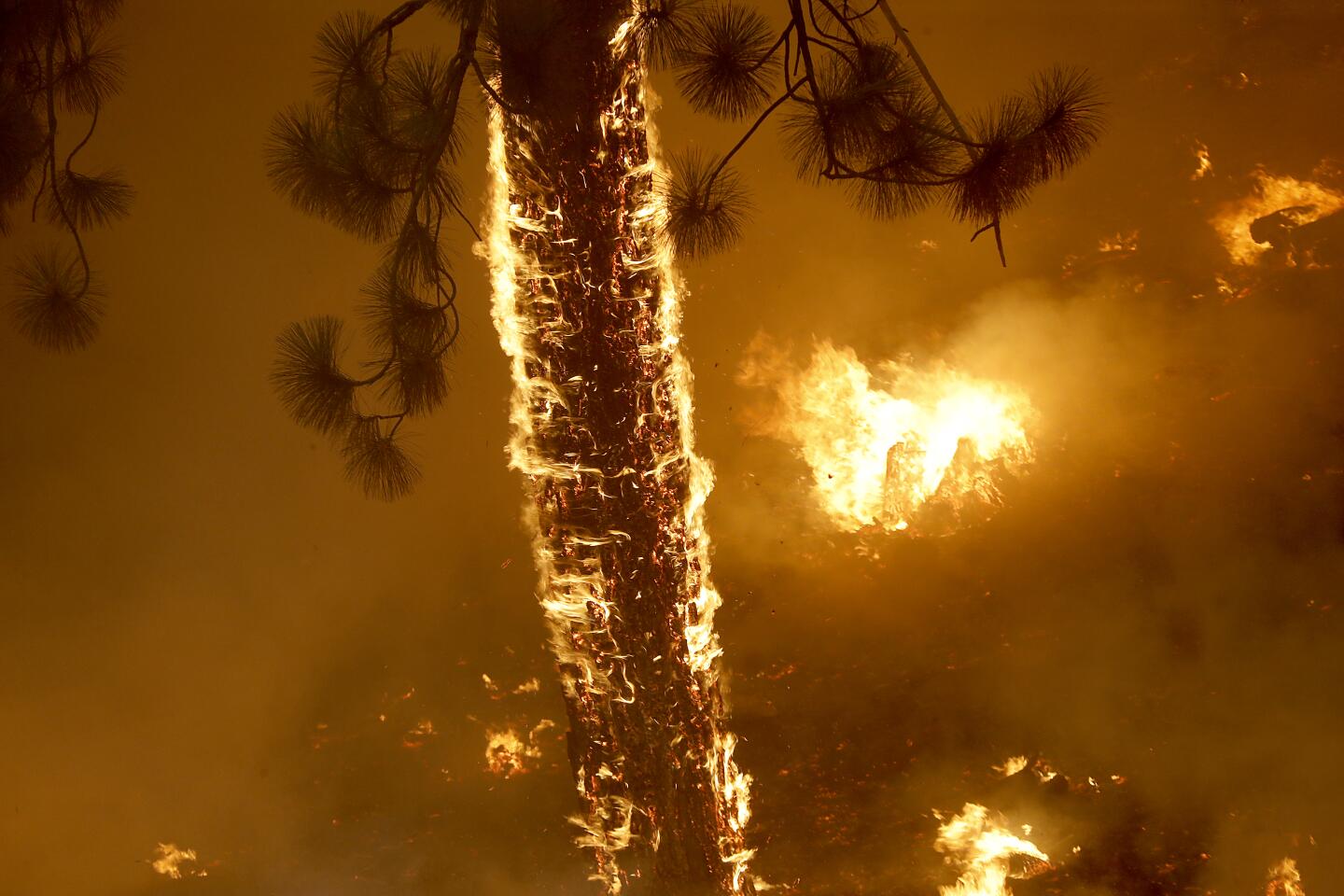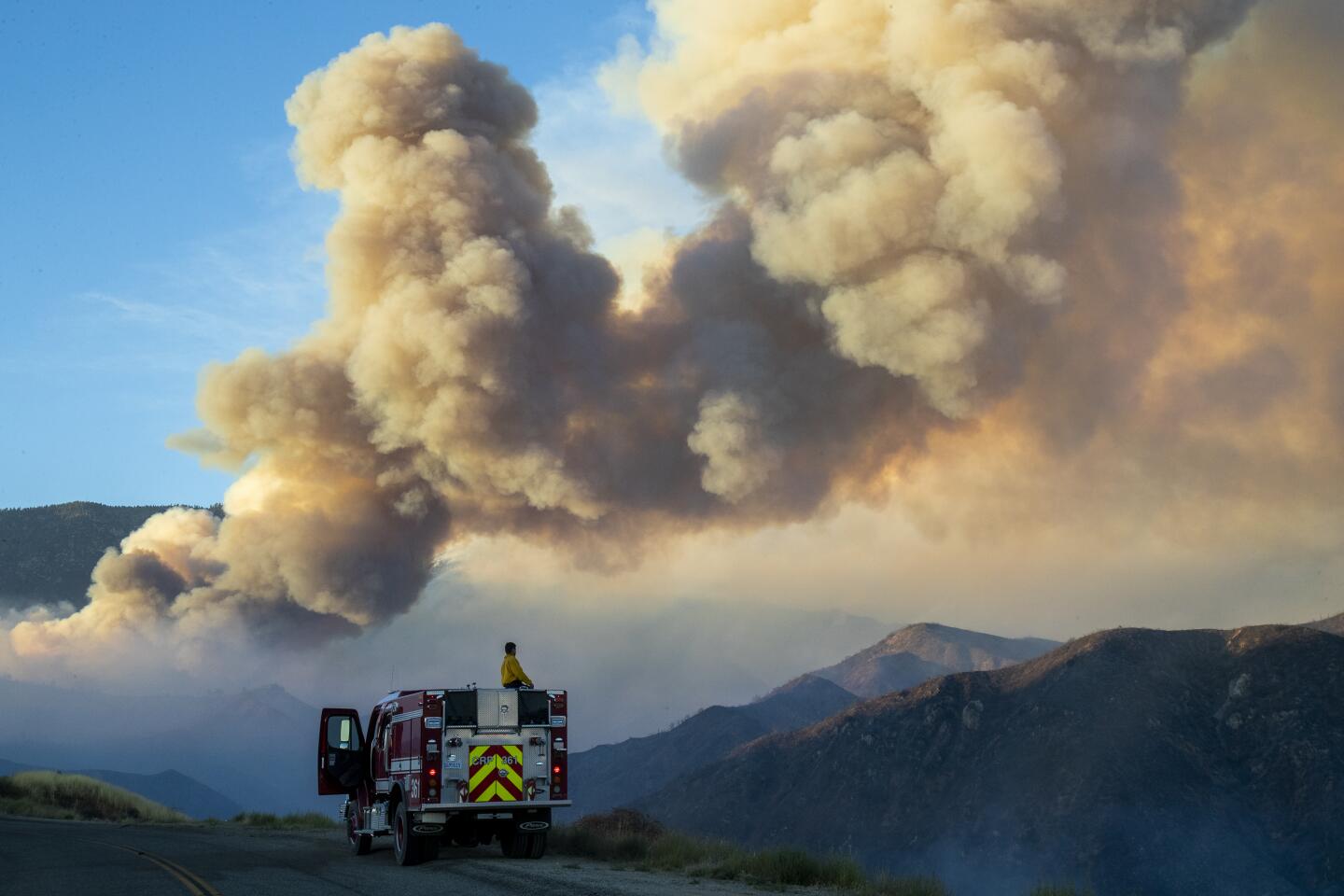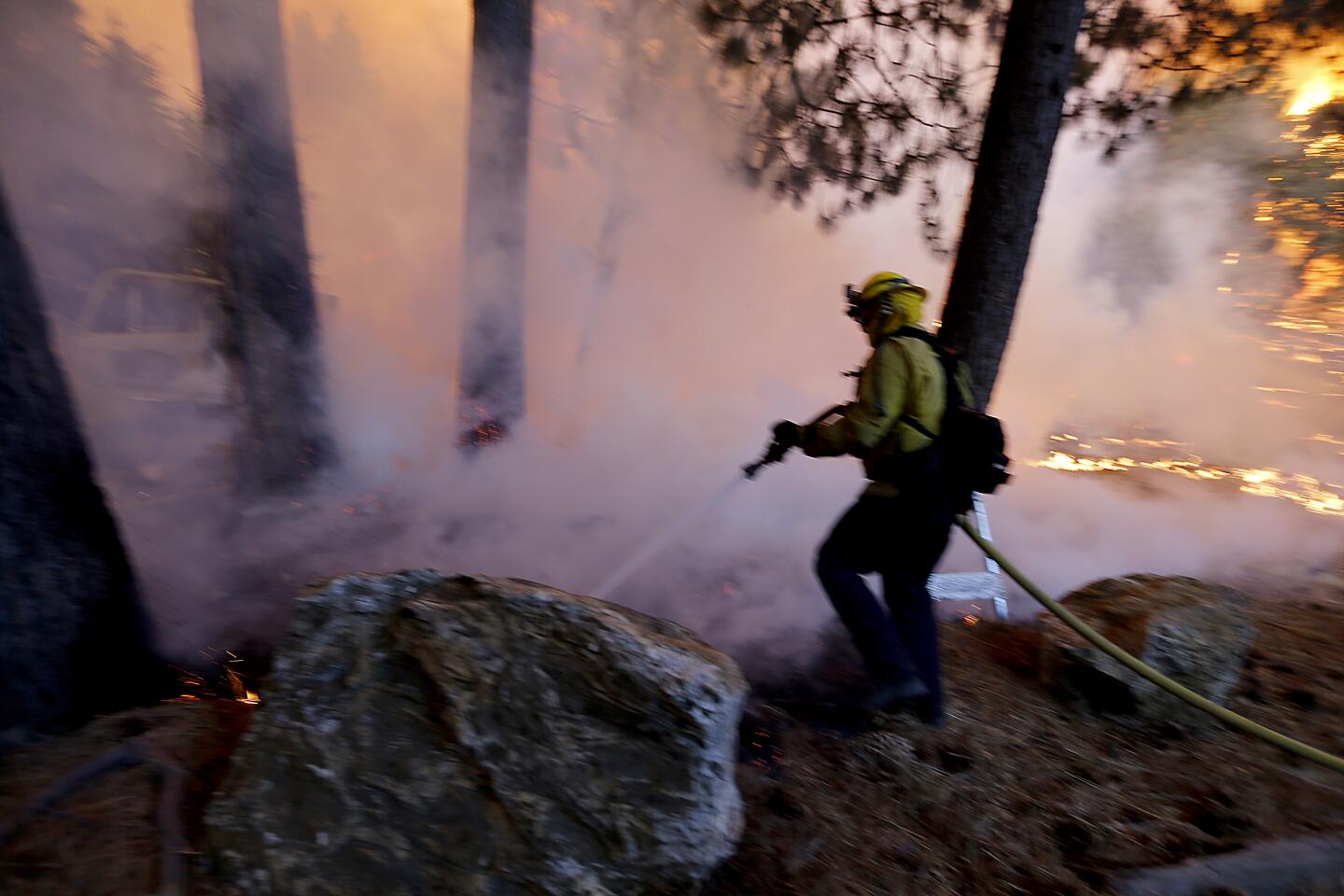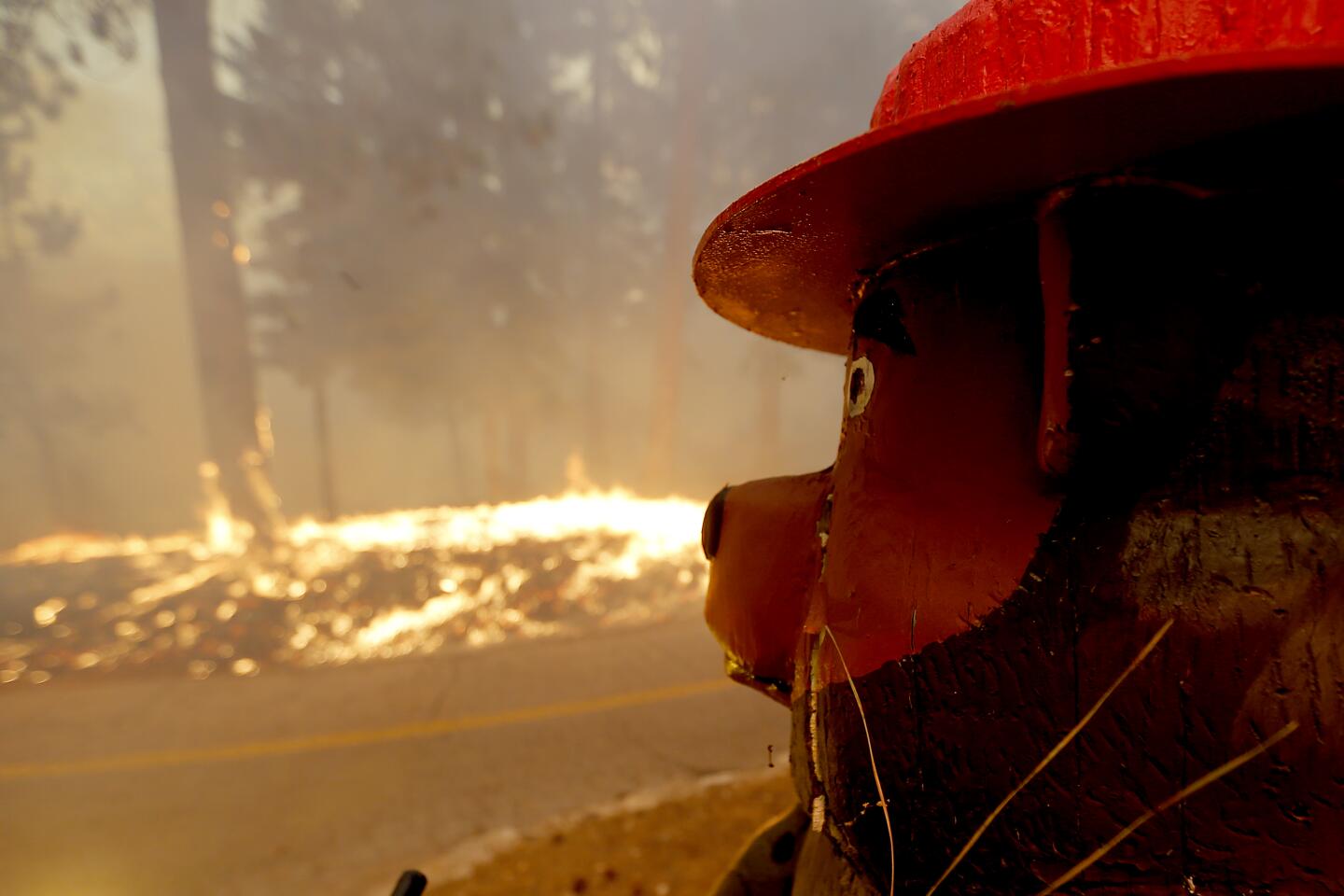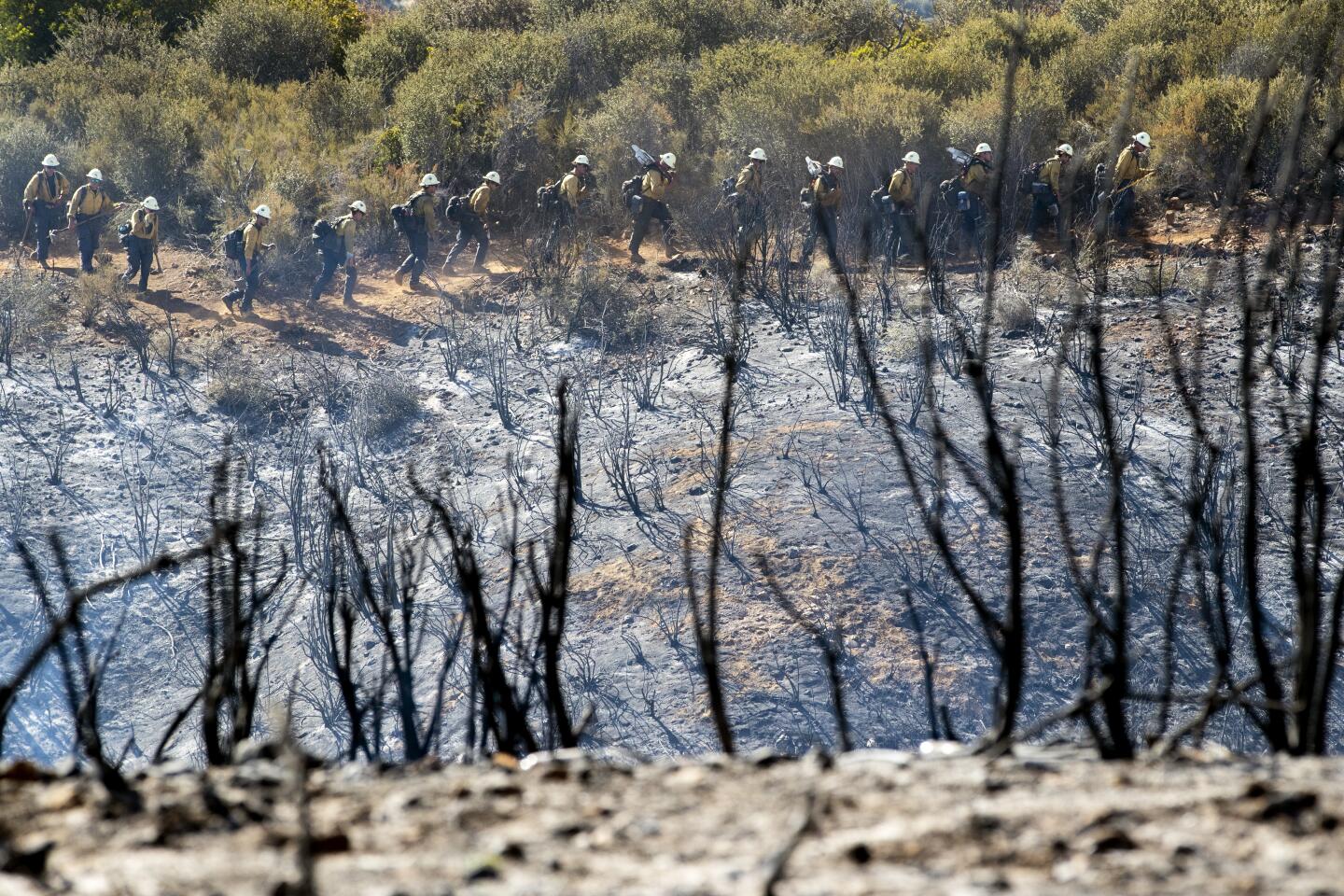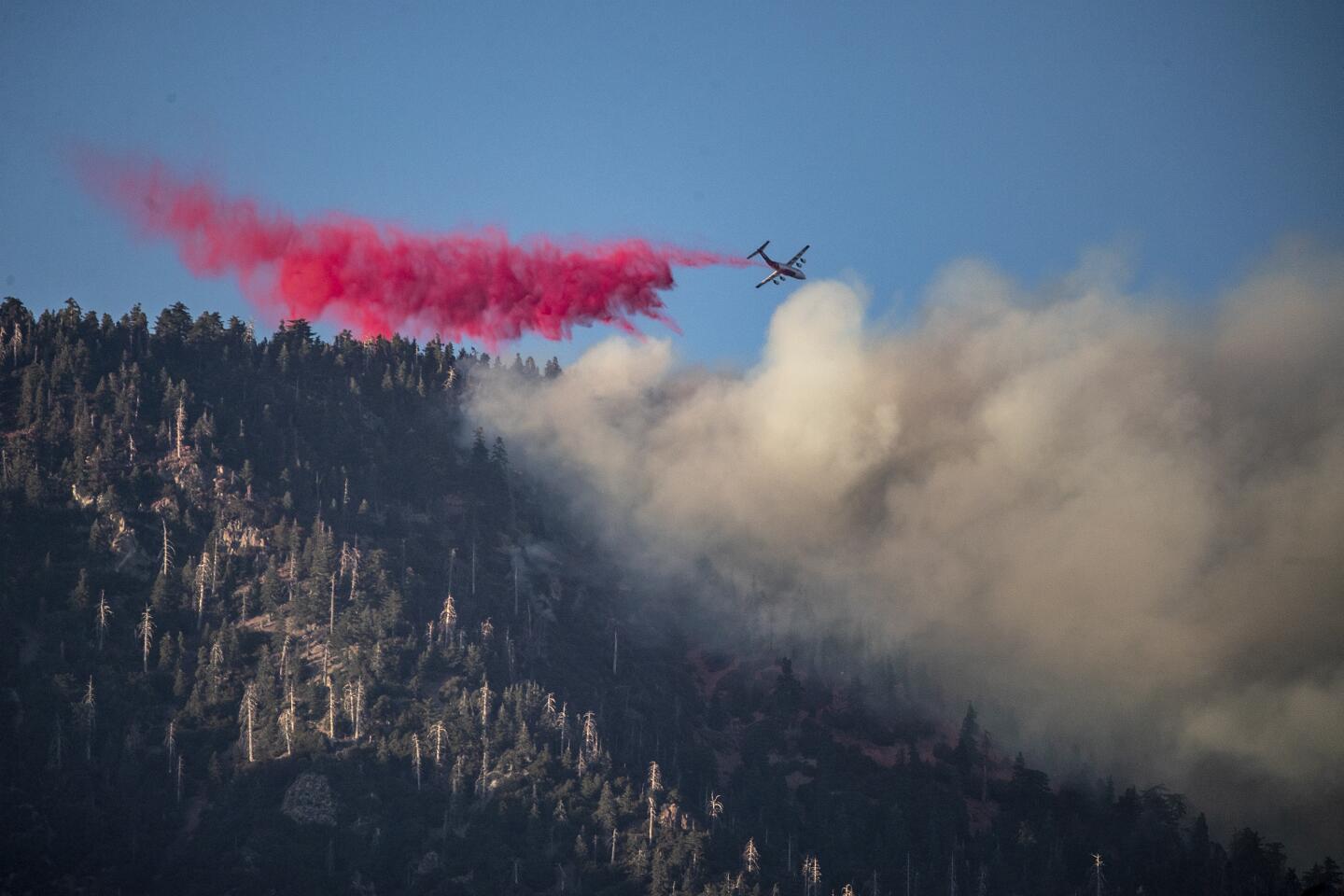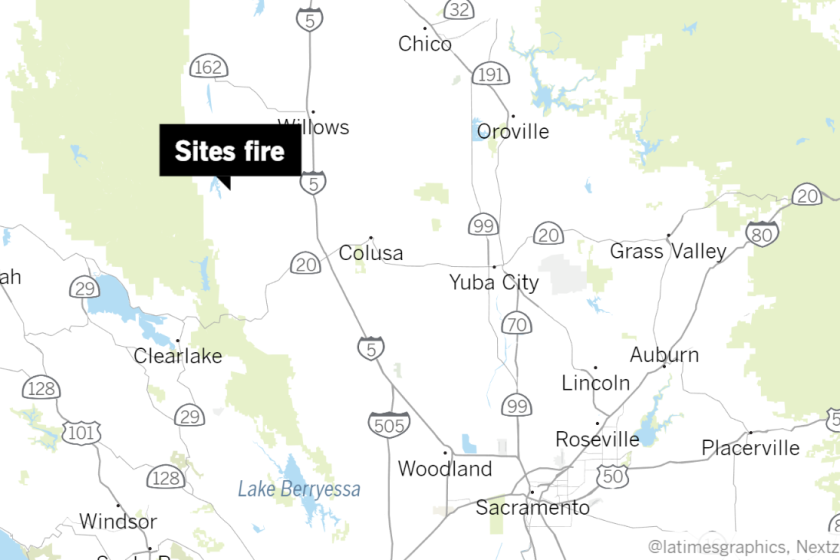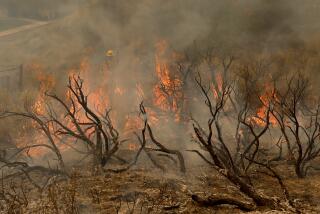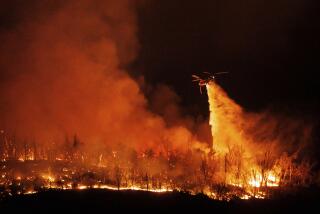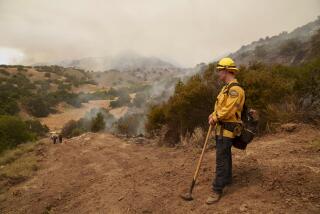Couple drove through flames to escape raging wildfire: ‘I put the pedal to the floor’
- Share via
WHITEWATER, Calif. — Ash from the massive Apple fire was falling like snow as Jack Thompson was double-checking clearances around his home at the Whitewater Preserve, a canyon wilderness about 12 miles northwest of Palm Springs.
He noticed a nearby column of black smoke and that worried him.
“I knew right away that this was a brand-new fire in my backyard,” said Thompson, 40.
He called out for his wife to “grab the dog and the packed suitcases. We’re getting out of here.”
She went to work, and moments later they were in their Toyota 4Runner heading down Whitewater Canyon Road, a five-mile serpentine one-way-in, one-way-out access lane linking the preserve to Interstate 10. They were less than a quarter mile down the road Sunday afternoon when they made a hairpin turn and found themselves surrounded by a wall of fire and smoke.
“My wife grabbed hold of my right hand, gave it a squeeze and wondered aloud, ‘Jack?’
“‘We’re going to be all right,’ I said, then I put the pedal to the floor. We broke through the flames and saw a clear path ahead.”
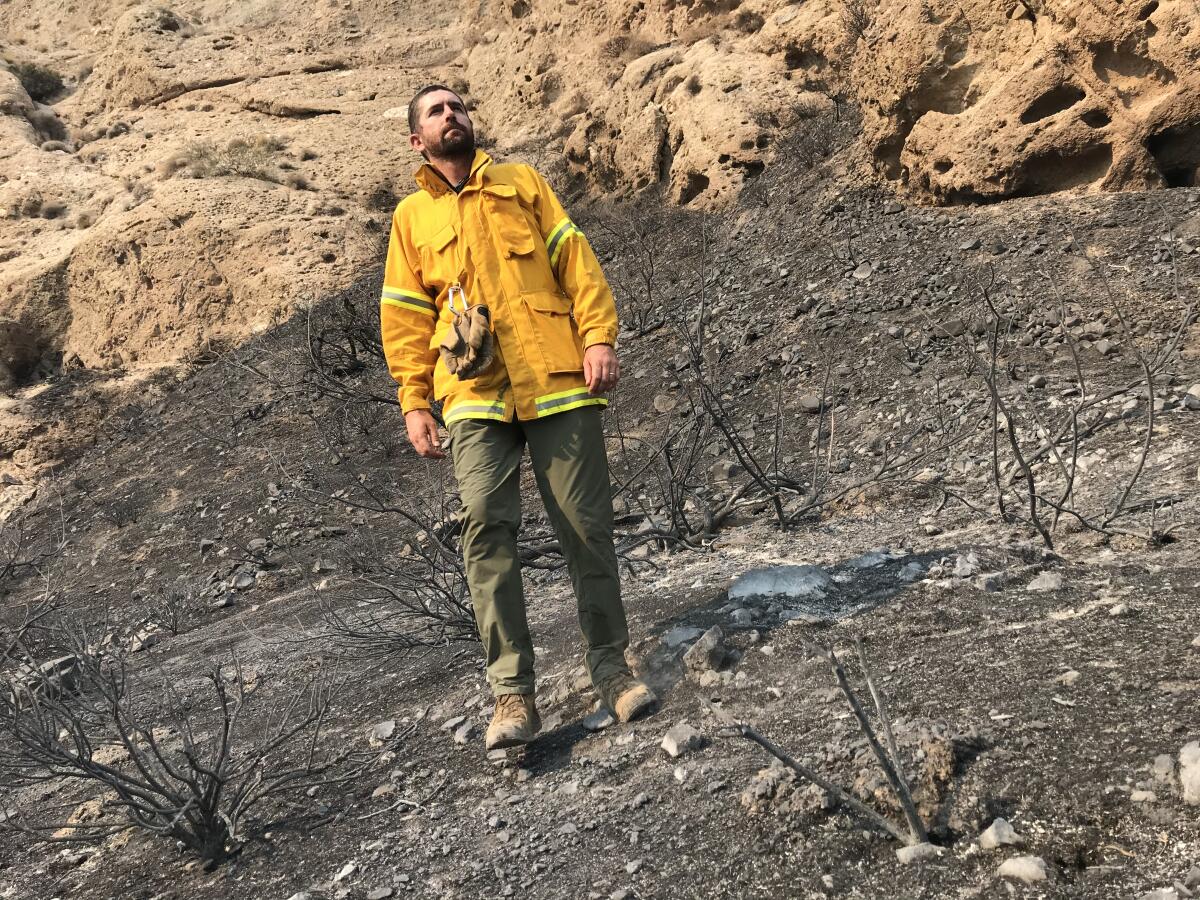
That’s what the last few days have been like for those caught in the path of a series of fires across California fueled by intense heat and winds.
The largest one is the Apple fire, which has chewed through more than 26,000 acres of mountain and forest land and left residents on edge.
Another wildfire quickly mushroomed to 200 acres in the Santa Clarita Valley on Monday afternoon, briefly triggering evacuations and forcing the closure of all lanes of the 14 Freeway before firefighters contained it to 130 acres. The Water fire burned Sunday near Interstate 10 north of Palm Springs. The Site fire was burning Monday in Colusa County.
The blaze had burned 26,450 acres and was 5% contained as of Monday morning.
But the biggest worry remains the Apple fire, which is burning in areas that have not seen fire in years, providing the fuel for explosive growth. As of Monday, it was only 5% contained.
The fire was started by “a diesel-fueled vehicle emitting burning carbon from the exhaust system,” according to a statement from the California Department of Forestry and Fire Protection and the Riverside County Fire Department.
About 2,300 fire personnel are working to douse the flames.
Multiple evacuation orders and warnings were put in place Sunday in Riverside and San Bernardino counties. About 7,800 residents in more than 2,500 households have been ordered to evacuate, officials said. The fire has destroyed one home.
Matt Moreland, a meteorologist with the National Weather Service in San Diego, said winds continued to be a problem Monday. Although gusty conditions are expected, Moreland said fire crews should benefit from cooling temperatures later in the week, which will see highs drop by about 10 degrees from Monday to Wednesday in the burn area.
“The bad news is some gusty winds in the afternoon and evening,” he said. “The good news is temperatures are going to trend cooler.”
The Sites fire began Sunday afternoon in Colusa County, northwest of Sacramento. Firefighters made significant progress in containing the blaze overnight.
The Apple fire is continuing to produce a massive amount of smoke, prompting the South Coast Air Quality Management District to issue warnings for nearby communities.
Officials said Sunday that the fire created a plume of smoke so large that it generated its own winds.
Satellite imagery released by the National Weather Service that day showed smoke swirling across a swath of Arizona — even reaching Phoenix, about 300 miles away.
Back near the Whitewater Preserve, Thompson considers himself lucky.
“The fire was heading toward our house,” he said.
When they reached the end of the road, there were fire engines racing toward the blaze with sirens blaring.
“I flagged a firetruck down and provided information about the locations of fire hydrants and water resources,” said Thompson, who is regional director of the Wildlands Conservancy.
“I told my wife that I was going back to join the firefighters,” he said. “She said, ‘Darling, I’ll be right here waiting for you.’”
More to Read
Sign up for Essential California
The most important California stories and recommendations in your inbox every morning.
You may occasionally receive promotional content from the Los Angeles Times.
